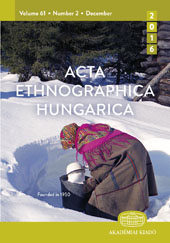Are there any elephants in the desert?!
Are there any elephants in the desert?!
Author(s): Judit HidasiSubject(s): Culture and social structure , Theory of Communication, Cognitive Psychology, Sociology of Culture
Published by: Akadémiai Kiadó
Keywords: humour perception; humour competence; joke; verbal discourse; Japanese communication; affinity for humour;
Summary/Abstract: Commonplace images from abroad of Japanese people and language hold that the Japanese are highly ritualized, harmony-seeking, and somewhat humourless. This study attempts to describe and analyze the reasons behind these images. It is pointed out that humour, and especially one of its characteristic genres, the joke, is a highly culture-specific construct. The topics of jokes differ from culture to culture and so does the kind of audience to which it is thought a particular joke can be told. It is also noticeable that humour competence and affinity for jokes – i.e. the capacity to produce, understand and perform humorous communication and interaction – is also a culturally programmed capacity. While in European cultures “humour competence” and “affinity for jokes” are considered intellectual virtues, in certain other cultures – like the Japanese – this practice has not been established. Based on a comparison with European discourse and communication practices we sought to identify the interaction and communication patterns that work against joke-affinity in Japanese culture.
Journal: Acta Ethnographica Hungarica
- Issue Year: 54/2009
- Issue No: 1
- Page Range: 21-30
- Page Count: 10
- Language: English
- Content File-PDF

